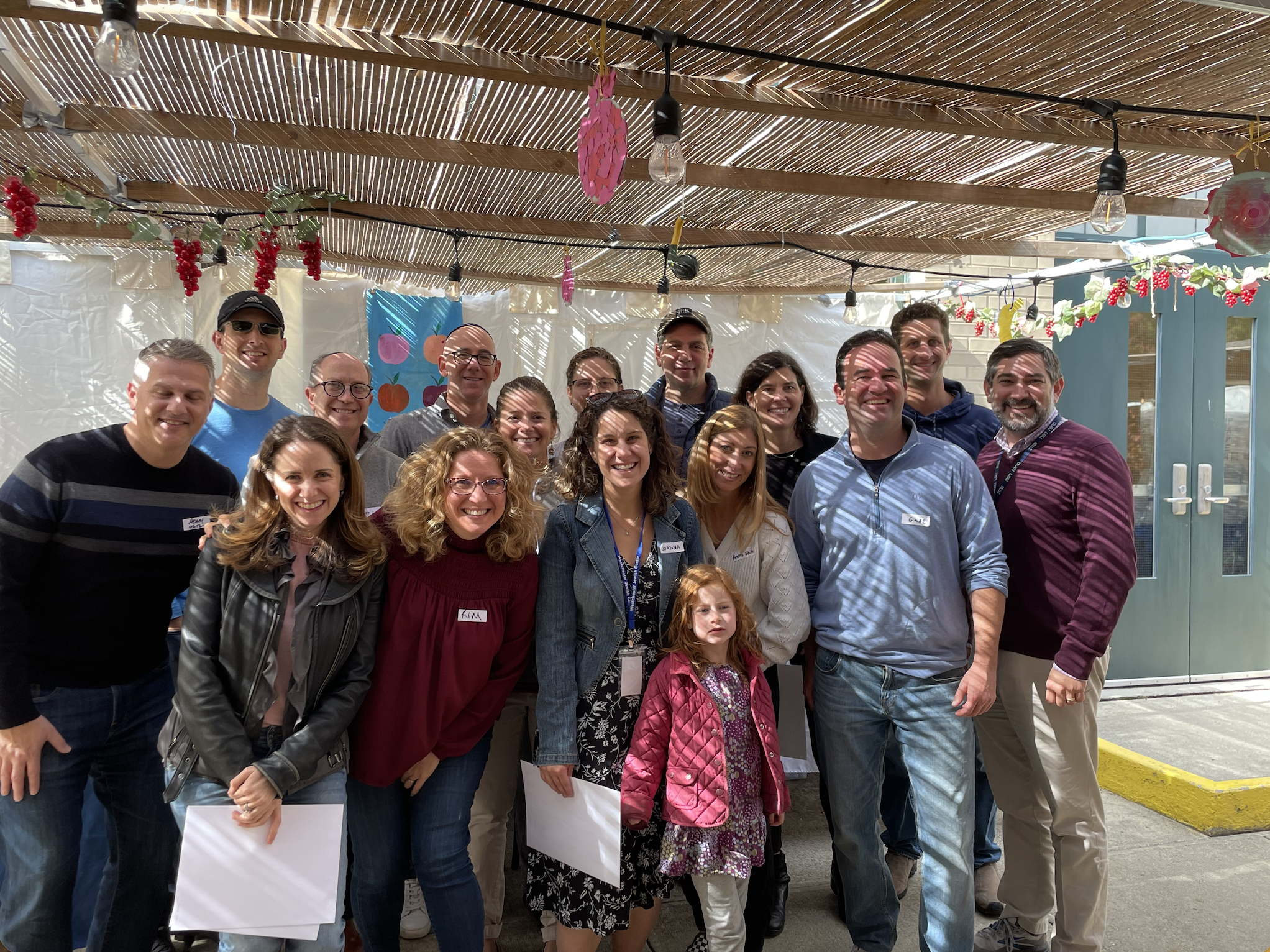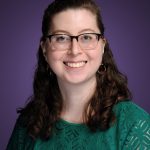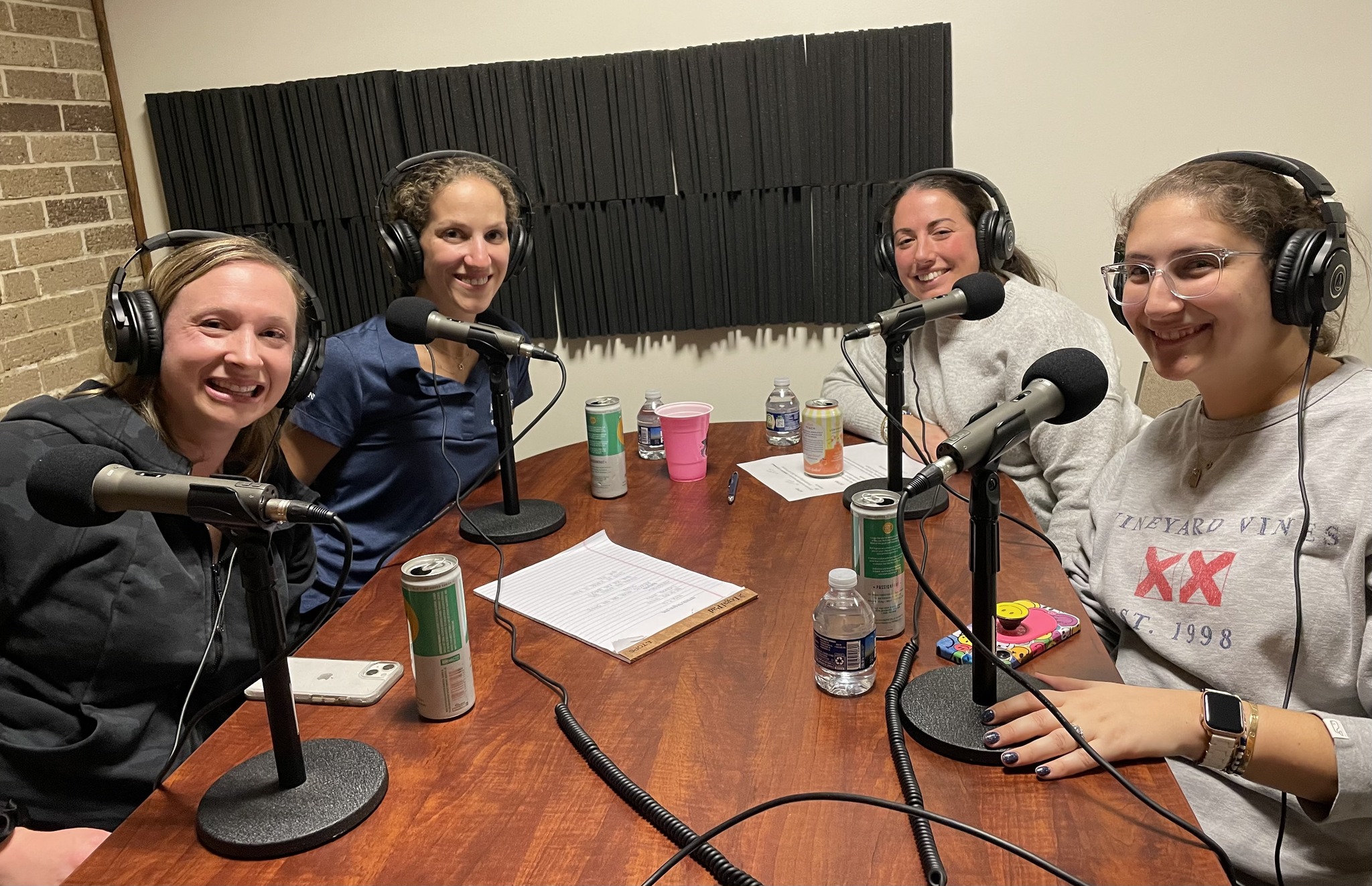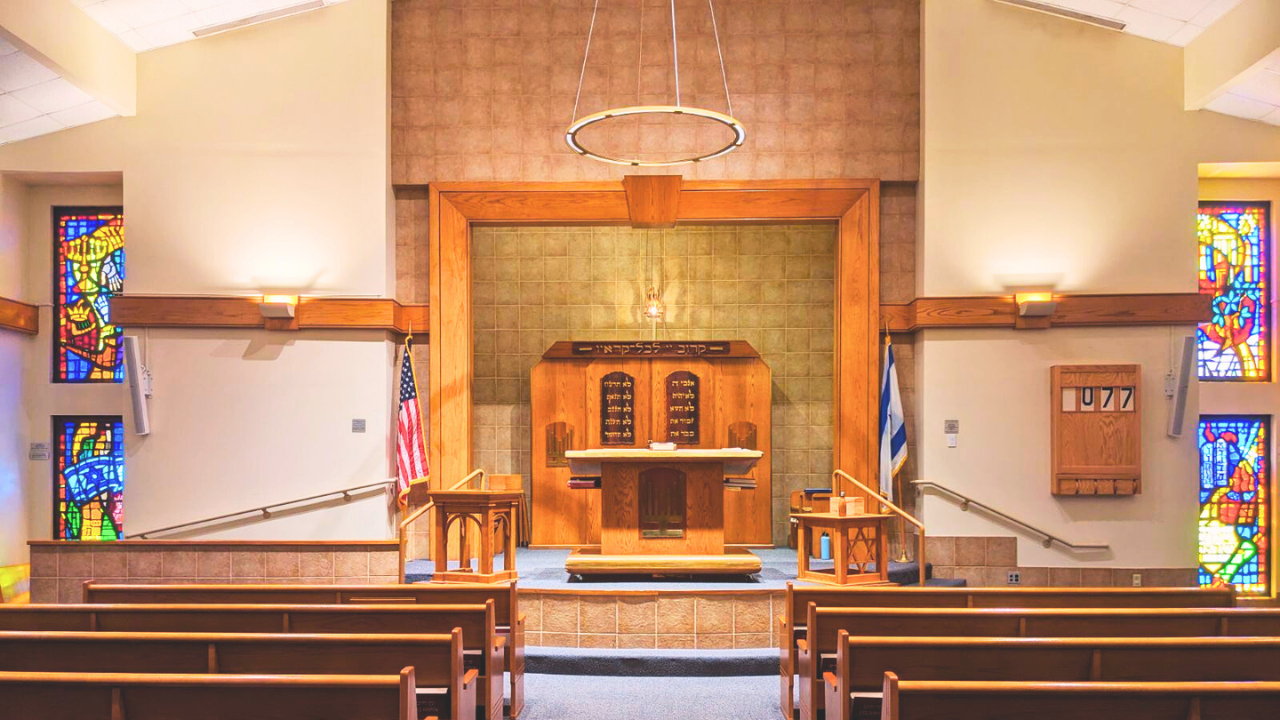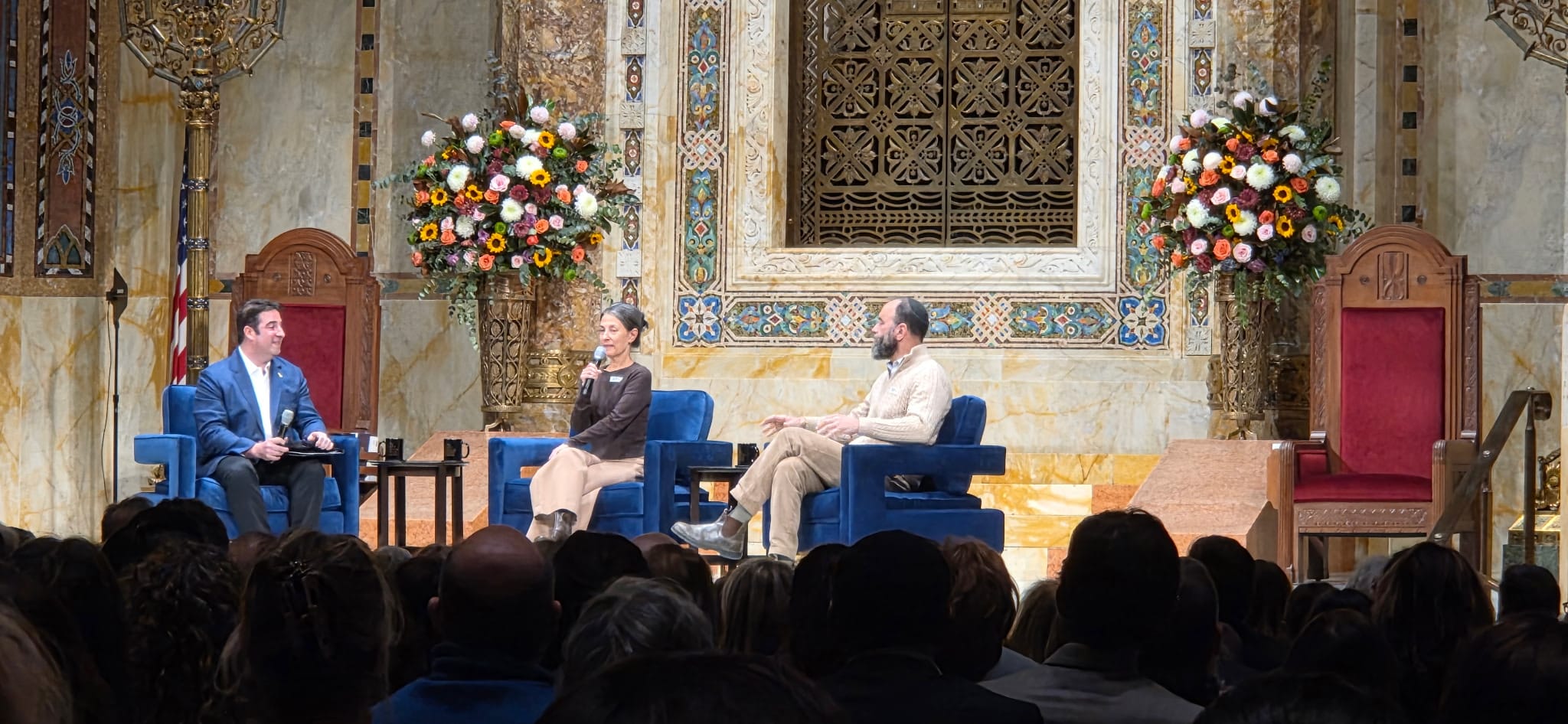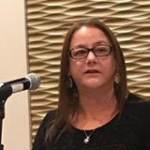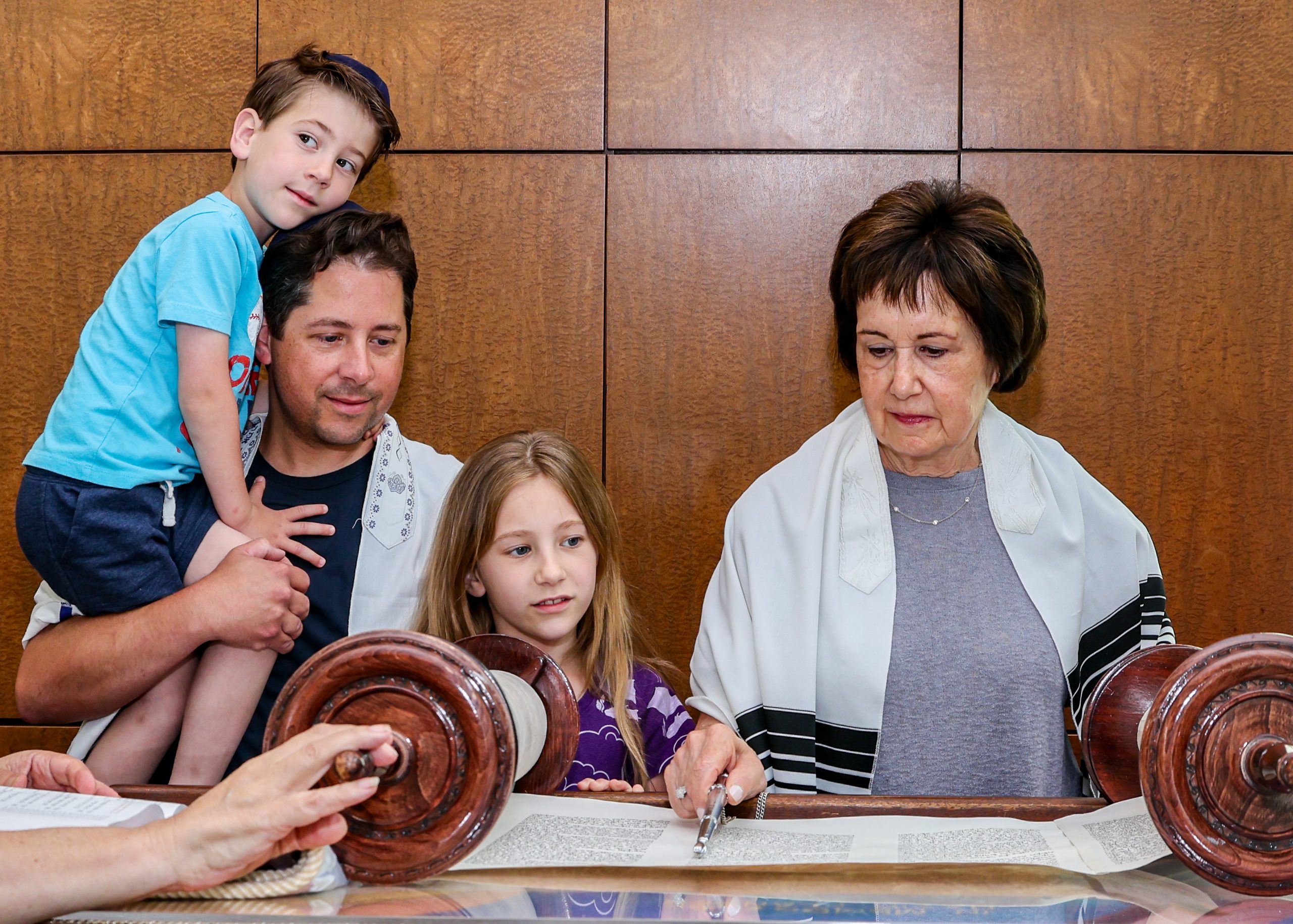
Rabbi Ilana C. Garber,
Director of Global Rabbinic Development, Rabbinical Assembly
Jennifer Stofman, MAJEd, Director of Synagogue Consulting, USCJ
Cantor Jen Cohen of Temple Beth Sholom in Cherry Hill, NJ, took a walk in her neighborhood during the first few days of the pandemic. When she realized she was near a congregant’s home, she texted to see if that person wanted to come outside to say hello. Eager for fresh air and fresh faces, the congregant came outdoors with her children. Cantor Cohen took a selfie of her and the family – socially distanced, of course – and posted it on Facebook.
Hundreds of comments poured in urging Cantor Cohen to take a walk in their neighborhood. And walk, she did. To the pockets of her large townhouse complex. To nearby homes in her town. And then to other towns where her members lived. She explored new neighborhoods and texted her members each day with a simple, “I’m outside your door! Come say hi!”
The Facebook selfies became a program she calls “Six-Foot TBS House Calls.” Cantor Cohen would spend time during each visit addressing the fears and concerns of her members, from technology to COVID. She listened. She smiled (through a mask). And she was present.
Between March 17, 2020, and Erev Rosh Hashanah 5781, Cantor Cohen visited close to 600 households of her 800-member USCJ synagogue. In her words, “Connect, connect, connect. People want to hear from us.” It was a lot of work, but she made it a priority, gave her Bar/Bat Mitzvah students a break, and depended on her clergy partners to cover the adult education. Did she sing as she walked? Perhaps only her chihuahua, Biscuit, knows for sure. But as she followed in the footsteps (pun intended) of Rabbi Abraham Joshua Heschel, her legs were certainly praying. This may not have been the cantorate she imagined, but it was exactly what Cantor Cohen’s community needed. And she pivoted into it perfectly.
It’s been over a year of shifting, rethinking, creating, visioning, and reinventing. Our clergy are talented and skilled; that, we already knew. Now they have become producers, directors, and stars of zoom services. They’ve embraced phone calls and outdoor visits, in lieu of embracing the members of their communities. Beyond the programming and innovations, it’s the presence of these clergy that have truly been the gifts of this pandemic.
Rabbi Laurie Hahn Tapper serves as School Rabbi and Director of Integrated Learning for Yavneh Day School, an independent Jewish day school in Northern California. When COVID hit, Rabbi Hahn Tapper knew she needed to shift her focus to supporting and enhancing the relationships among her students in very new ways. Always the kind of teacher who begins her class with a daily check-in, that ritual became even more important as her students were limited in the other people they saw on a daily basis while learning remotely. She knew they needed the face-to-face connections, the peer interactions, and the conversations that were about nothing and everything at the same time.
Rabbi Hahn Tapper’s biggest pivot came with the school’s Tefilah and holiday celebrations. Communal prayer and Torah readings by students are central to the core of the school’s foundation. How could students with upcoming Torah readings participate from home? As soon as she was permitted, she went to the school building and took the school’s Torah scroll home to her house. Spreading it open on her dining room table, Rabbi Hahn Tapper held her phone over the text while her son pointed with the yad. The assigned student – reading from his or her home – was able to follow the text and chant from the Torah. A modern-day technological miracle!
But the icing on the cake: an email from a parent, saying she had never seen the Torah up close before and how much she appreciated this opportunity to experience Torah with her family.
Presence. Torah. Experiencing Judaism at home. This kind of creativity and innovation is both simple and extraordinary. To perceive the needs of members of the community and to meet and exceed their expectations, that is the pivoting present and the presence of our rabbis and cantors.
Rabbi Guido Cohen (no relation to Cantor Jen Cohen) of the Aventura Turnberry Jewish Center in Miami, FL, tells the story of his most successful phone call. Early in the pandemic, Rabbi Cohen began calling all of the members of his 650 member USCJ congregation, just to say hi, to check in, or to listen. He called one woman, whom we’ll call Leah. It was just one of the several hundred phone calls that month, but he happened to be calling while he was running into the supermarket to pick up a few things for his family. With complete sincerity, Rabbi Cohen asked Leah if she needed anything. Her response: I’m out of chive cream cheese. And within minutes, Rabbi Cohen was at her door with the specialty cream cheese. Did rabbinical school prepare him to deliver groceries during a pandemic? No. And yes. To Rabbi Cohen, this is simply the mission of his rabbinate.
Leah died a few months later. To most, including Rabbi Cohen, she was known as someone who faced financial challenges. Imagine his surprise when Rabbi Cohen was contacted by the executor of her estate, sharing that Leah had left a generous amount of money to the synagogue. As Rabbi Cohen explains, this story is not about the money. It’s about the relationships. It’s about being there when people need us, where they need us (in his case, a supermarket!), and in the way they need us.
Stories of innovation from our RA rabbis, CA cantors, and USCJ synagogues abound. Our communities and their leadership are stretching, learning, growing, and of course, pivoting. And through all of the big, impressive programs and initiatives, sometimes it’s the smallest gesture that can make the biggest impact. A selfie. A personal glimpse of the Torah. A phone call. And yes, chive cream cheese.
Michele Golkow, Past President of Temple Beth Sholom in Cherry Hill, NJ, said it best:
“Years from now when we look back upon the COVID-19 pandemic, we will struggle to remember whether it took place in 2024 or 2020 and whether we really held our Seders and shivas by Zoom. I have no doubt, though, that we will remember that Cantor Cohen came to our doorsteps for six-foot house calls to check on us and provide a few precious moments of in-person contact.”

